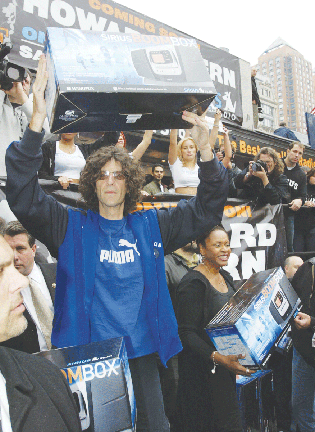Social Distortion Brings Sex, Love, and Rock ‘n’ Roll to Avalon
October 28, 2004
If the deaths of Joe Strummer and three-fourths of the original Ramones lineup make you doubt the possibility of something meaningful happening to music in your lifetime, you’re probably not alone. Even as I scoff at the Abbey regulars sporting bald ponytails or graying Johnny Ramone haircuts, the leather jackets past their prime, I still can’t help but feel like I missed out on something, leaving me one of two options: wait for something new to come along (not likely), or look to the veterans to plug along and keep doing what they have been doing for the last 25 years.
In response to this perhaps philosophical quandary, Social Distortion recently released their seventh full-length album Sex, Drugs, and Rock ‘n’ Roll after an eight-year hiatus. Playing a sold out, all-ages show at Avalon to a crowd singing along to all the new album’s songs (just released September 28, 2004), frontman Mike Ness took a few seconds in between songs to bring a youngster onstage to prove a point. To twelve-year-old Chris (who was trying really hard to act like this wasn’t the coolest moment of his life) and everyone else in the mainly 20-30 something crowd, Ness said something to the effect of, “this is for the next generation, because when we’re all dead, who’s gonna wear the leather jackets after we’re gone.” It was a nice gesture coming from someone idolized by many-it seems there aren’t many living heroes left to pass that torch anymore.
Their show was pretty much what I expected-a ton of greasers and punks packed in like sweaty sardines singing their hearts out. If it wasn’t for the fact that I was determined to get at least one good photo, I would have remained in the back where I couldn’t see anything (shows at Avalon almost always disappoint, especially when they’re overpriced, sold out, and over by 10 p.m., which is always) but then I figured if I wanted to settle for just listening I could do that in the privacy of my own home.
Surprised to see my favorite electric bass player Matt Freeman doing his thing (looking bored onstage as Rancid takes a break from touring and recording-I guess John Maurer quit the band after recording the new album) when I finally reached the front, I was very happy to get tons of photos of Mike Ness in classic rocker pose-you know, legs spread, guitar down to the knees, strumming like a madman. Most of the songs they played were either from Live at the Roxy (recorded in ’98 over three days and compiling their greats to date) and Sex, Drugs, and Rock ‘n’ Roll.
Commonly referred to as “rockabilly punk pioneers,” a description based more on their image and rebel-idolizing lyrics in songs such as “Sick Boy” than their actual sound, Social D, formed by Ness in Orange County in 1978, feed off of a devotion to their roots: country music and the late ’70s OC punk scene (itself a materialization of New York, London, and L.A.). Although I’m pretty sure there weren’t many audience members at the Grand Ole Opry flailing Doc Martins or shaking fists at the breakout of “Ring of Fire” like at this show, the likeness isn’t too hard to find. There’s a David Allen Coe song that cites the recipe for the “perfect country and western song:” Momma, trains, trucks, prison, and gettin’ drunk. Well, Mike Ness certainly has this formula down pat (in lyrics and in life) and throws in additional tried-and-true ditties about bad decisions, failure, and contemplating all of life’s other uphill battles in a vein that would make Hank Williams or Johnny Cash proud.
Dedicated to the memory of Dennis Dannell, longtime guitarist of Social D and childhood friend of Ness, Sex, Drugs, Rock ‘n’ Roll, the first full album recording since 1996’s White Light, White Heat, White Trash, is an effort that focuses on love and lessons learned from loss. More optimistic than any previous Social D album, songs like the opening track “Reach for the Sky” and “Live Before you Die” are testaments to the living and the value of things generally taken for granted. After four songs with the same theme and interchangeable lyrics, though it’s easy to get bored and expect more from the man who wrote “Prison Bound,” a ballad about taking the wrong path without reservation or regret, or “Story of My Life,” easily considered the Social D anthem. This album seems to be chronologically out of place; the lyrics are youthful and look the future, whereas WLWHWT’s songs are angry and reflect on the past.
Each album’s take on love follows this trend as well and, after a few dozen listens, SDRR can’t help but grow on you-just don’t expect the pissed off punk rock anthems of albums past because Mike Ness seems to be singing a different tune.






















































